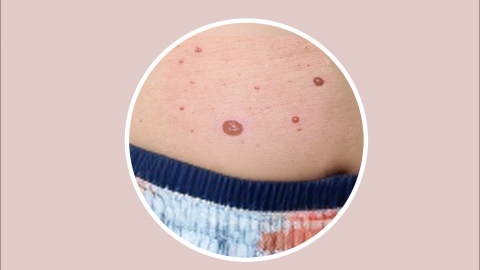What should be noted about liver hemangioma?
Hepatic hemangioma is a relatively common benign liver tumor. In most cases, it presents no obvious symptoms, but proper daily care is essential to reduce the risk of disease progression. Key aspects include regular monitoring of the condition, adjusting lifestyle habits, paying attention to dietary management, engaging in appropriate exercise, and avoiding potential triggers. The details are as follows:

1. Regular monitoring of the condition: Follow medical advice to undergo regular liver ultrasound or CT examinations to monitor changes in the size and morphology of the lesion. If the hemangioma is small and asymptomatic, a follow-up every 6–12 months is generally sufficient. However, if the tumor is large or growing rapidly, the interval between check-ups should be shortened, and timely evaluation for possible intervention is necessary.
2. Adjusting lifestyle habits: Avoid staying up late and overexertion, ensure adequate sleep, and reduce the metabolic burden on the liver. Also avoid smoking and alcohol consumption. Alcohol can directly damage liver cells and may indirectly affect the health of surrounding tissues, increasing the risk of complications.
3. Emphasizing dietary management: Maintain a light, easily digestible diet rich in fresh vegetables and fruits to meet the body’s nutritional needs. Avoid long-term consumption of spicy, stimulating, greasy, or high-cholesterol foods, which can increase digestive strain on the liver and加重 metabolic burden.
4. Appropriate exercise management: Choose mild exercises such as walking or tai chi, and avoid strenuous activities or abdominal trauma. Vigorous exercise may increase intra-abdominal pressure, raising the risk of hemangioma rupture—particularly in patients with larger tumors, who should strictly control exercise intensity and range of motion.
5. Avoiding triggering factors: Avoid taking medications that may harm the liver, such as certain antipyretic analgesics or unverified supplements. Always consult a healthcare professional before starting any medication. Additionally, maintain emotional stability and avoid prolonged anxiety or depression, as negative emotions may impair liver blood circulation and destabilize overall health.
Patients should prioritize daily self-care and regular monitoring. Through scientific management, the risk of disease progression can be minimized. Developing healthy lifestyle habits in daily life also contributes significantly to maintaining overall well-being.







